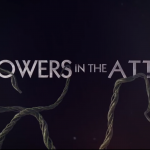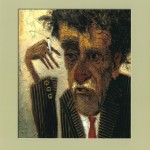Though Christians have spent a lot of time discussing sex and language in movies and books, we’ve generally devoted less effort to analyzing the effect of reading about or viewing violence. Here, two of our CAPC writers, Alan Noble and Carissa Smith, discuss these issues in relation to Blood Meridian.
Don’t miss the first installment of their dialogue, in which they describe their initial experiences with the novel and discuss what Christian and non-Christian readers could possibly gain from reading it.
Carissa: “Is there a third way between violence and passivity?”
Thanks, Alan, for your thoughtful response. I especially appreciated your point about the silence of God in the novel. I can see that, and I like the quote from Tobin that you mention.
I think where we differ is in how much we think the kid changes over the course of Blood Meridian. You say that the kid “moves from feeling that existence is validated through violence (the domination of one will over another or others . . . to an inchoate belief in a ‘love thy neighbor’ ethos.” I don’t see that. He seems inclined to help his companions up to a point and then abandon them, at the beginning and at the end of the novel. His actions, to me, don’t seem to point to a changed view of the world. He may carry a Bible, but, as the narrator tells us, he can’t read a word of it. True, as you say, his new belief may be inchoate, and it certainly doesn’t have to be stated verbally by either the kid or the narrator in order to be real. Oddly, the most significant textual support that the kid is of a higher moral caliber comes from the judge’s mouth, and he hardly seems like a reliable source.
Throughout the slaughter first of the Apaches and then of the Mexican townspeople, the kid totally recedes from the readers’ view (like God in the world of the novel, I suppose). We have no idea what he’s thinking and very little idea of what he specifically is doing (presumably participating in the carnage). So, for me as a reader, it totally comes out of nowhere when the judge says to the kid, “You alone reserved in your soul some corner of clemency for the heathens.” It almost feels like McCarthy, committed to a distant narrator, suddenly makes the judge do the expository work that the narrator hasn’t been doing. And I, for one, don’t buy what the judge says, because I haven’t seen it borne out in the kid’s actions. It feels like the narrative equivalent of a magician pulling a turtle out of a hat and proclaiming, “Ta-da! A rabbit!”—and expecting his audience to respond to the turtle as a rabbit.
Recently I’ve been reading Alan Jacobs’s Original Sin: A Cultural History, and last night as I was reading that book’s discussion of the famous Stanford Prison Experiment, I thought of the kid. For those who aren’t familiar with the experiment, it was conducted in 1971 by psychologist Philip Zimbardo. In a simulated prison environment, students were divided into two groups: prisoners and guards. After just a couple of days, the guards’ brutal treatment of the prisoners became so extreme that Zimbardo had to call off the experiment.
Just last year, Zimbardo published a book-length discussion of his experiment, called The Lucifer Effect: Understanding How Good People Turn Evil. In The Lucifer Effect, he mentions that, in the original Stanford Prison Experiment, there were actually “good guards” who did not show direct cruelty to the prisoners. However, these good guards “never did anything bad to the prisoners but not once over the whole week did they confront the other guards and say ‘What are you doing? . . .’ Or, ‘Hey, remember those are college students, not prisoners.’ No good guard ever intervened to stop the activities of the bad guards. . . . In a sense, then, it’s the good guard who allowed such abuses to happen.”
The kid, to me, to the minuscule extent that he does have a changed worldview, basically ends up as one of the “good guards” that make abuse and violence possible. You write that the kid passes up “the opportunity to kill the judge, because to kill the judge would be to concede to the judge’s worldview; the will to power. So while the kid doesn’t physically stop the judge, he is the only person in the judge’s grasp that manages to reject an atheistic, will to power philosophy.” What the kid doesn’t seem to realize, if this is true, is that there’s a difference between mere passivity and committed pacifism (not necessarily in the sense that all violence is wrong, because I wouldn’t expect the kid to end up there—but I do feel there’s another alternative between the extremes of will-to-power and passivity that the kid—and the novel—ignores).
Thus, the kid’s death?/rape?/mutilation? at the hands of the judge moves me not a whit. It’s not even a sacrificial death; it’s merely a passive one. Eat or be eaten are the alternatives, and he gets eaten. But maybe there’s a third option that looks like being eaten but really entails moral victory.
To return briefly to Zimbardo, he’s apparently investigating how to cultivate “heroism.” And I’m enough of a pessimist that that makes me laugh. However, I do think that the story of how “evil” people become good is a more interesting story than how “good” people become evil, especially since I believe that, post-Fall, evil is our primary state. That’s what I feel is missing from Blood Meridian. If the kid does indeed change for the better, which is what McCarthy seems to want us to believe, I want to know how and why he changes for the better.
On a side note, given your statement that you wouldn’t recommend Blood Meridian to many Christians, I’m curious about whether there are situations you can think of in which you might recommend the novel to a Christian reader. That’s probably a hard question to answer on a theoretical level, but I’d be interested to hear your thoughts.
Alan: “Even baby-steps toward morality are significant.”
The change that I see in the kid, and even the kid’s character in general, is not easy to identify. McCarthy works with margins and values that are atypical, and the kid is a perfect example. In a more traditional novel we would expect the kid to move from immaturity to maturity, from unbelief to belief, but the kid doesn’t give us much to work with. By the end of the novel he might believe in some higher power, acknowledge that there is a moral order, and have an awareness that there are signals of transcendence in the world, but he doesn’t know who this God is or what order He has established. Thus, the kid carries a Bible but can’t read it. He has the awareness that there is Truth beyond him, but he has not come to any real beliefs about that Truth.
In addition, as you point out, the best he seems to be able to do is passively resist evil, which is hardly ideal. I think you are right in identifying him as a kind of “good guard” in Zimbardo’s type. I think there are probably two reasons for the kid’s unwillingness to fight the judge. The first is that he is not fully mature. He thinks that the best he can do is decline to join in the evil. As readers, we can see that the kid could certainly do more than abstain from violence himself, he could try to kill the judge, but the kid is never given the opportunity to come to this realization. We should keep in mind, however, that the kid is able to at least resist the worldview of the judge, a feat that almost no other character can do. The second is that McCarthy believes that humanity cannot be improved; humans are horrible, cruel, violent creatures and no amount of social order will change that fact. Ultimately killing the judge will not change the reality of human depravity, and since the judge (in part) functions as a personification of human evil, McCarthy suggests with his ending that man, by himself, cannot rid the world of evil, but he can opt-out.
As for when and why the kid begins to change, I believe it starts after the gang massacres “a band of peaceful Tiguas” near the middle of the novel. After this happens, Toadvine and the kid confer together and Toadvine states that the Tiguas weren’t bothering anyone. This is the first point where the kid gives any indication that he doesn’t agree with the judge’s leadership, and what seems to have caused him to reconsider his trust is the murder of the innocent, nonviolent Tiguas.
The kid’s silence through most of the middle section of the book is important; as you pointed out, the judge tells us near the end that the kid did not share his murderous heart, but we never really hear of the kid refusing to fight or kill. What I think is interesting is that the few times the narrative does focus on the kid in the middle section we find him helping others, sometimes at the risk of his own life and always against the will and belief of the Glanton Gang.
Specifically, there are three times when the kid goes to help a gang member. He helps Brown when he has an arrow in his leg, he goes to the aid of McGill when he is skewed with a lance, and Shelby when he is left to die in the desert. In each of these cases the kid goes against the judge and the gang by helping a weak person. The most telling scene is when he is ordered to shoot Shelby, who is wounded and cannot ride with the Glanton Gang anymore. The gang is being pursued by the Mexican army, so if Shelby is caught he will be abused and killed. When the kid is alone with Shelby the wounded man tells him that if he had a gun he would kill the kid; the kid simply answers that he doesn’t have a gun. Shelby asks the kid to move him to some shade, and when the kid reaches down to pick him up, Shelby tries to take his gun. Despite the fact that Shelby has tried to steal the kid’s gun (to kill him), the kid sets him down and fills his canteen with his own water. The kid chooses to show mercy to this man who attempted to kill him.
Considering the obscene carnage and selfish cruelty in this book, and the fact that the kid once agreed with the philosophy behind this cruelty, for him to show mercy to someone who tried to kill him is incredible. While aiding a few, pathetic, vile, gang members hardly seems like a change in the kid, we have to keep in mind that in the world of this novel, the kid’s actions are alien and significant. In the beginning of the novel he literally lives to fight, but here he shows no sign of violence at all, even when violence presents itself. In addition, we have to recognize that the kid’s world is not one of kindness, it is survival of the fittest. Throughout the novel there are only a handful of kind acts and none of them come from the Glanton gang. So in comparison to the other characters, the kids few acts of mercy are significant. Also, the philosophy of the judge (a philosophy that the kid once adhered to along with the other gang members) is survival of the fittest, which means that the kid’s kindness towards the weak or wounded is foolish, but he is kind nevertheless. And finally,the few times we see the kid in the middle of the novel he is being kind to someone, not killing. Although these actions seem slight in comparison to the atrocities of the novel, McCarthy does seem to give us certain indications that in a world so devoid of order, even small acts of kindness are significant. {/column2}
The kid’s growth is not complete, well-formed, or well-informed. But he still moves, he still grows from one believe towards another. And while he does not physically confront the judge, he does show us that the judge, and evil, can be confronted. While humanity cannot purge the world of evil, individual people can choose to turn from evil. And part of that turn for McCarthy has to do with acknowledging an Other, some Truth outside the individual. Much like what McCarthy has explained of his own beliefs, the kid is left with a faith that there is something else, but he is not certain Who is out there.
In regard to your side note, I think I would recommend this book to Christians who are not bothered too greatly by descriptions of graphic violence, who are interested in exploring symbolism and philosophy, and who are interested in how non-Christians might explore Christianity in a post-modern world. Because I think in the final estimate, throughout McCarthy’s literature he is seeking a way to explain transcendence, morality, and existence in a post-modern world, and increasingly in his novels the answer has been a return to Faith, although neither he, nor his characters appear to be certain that this is the Truth. The kid starts down this path because the world of existentialist chaos preached by the judge is insufficient, but he is unable to make a final decision. In his later novels (including The Road), McCarthy’s characters seem to be coming closer to identifying Christianity as the only reasonable and valid foundation in a world that has rejected foundationalism. And although I’m not sure where McCarthy and his characters will turn out after he as finished searching and exploring, I am intensely interested in how these issues manifest themselves in each new novel.











